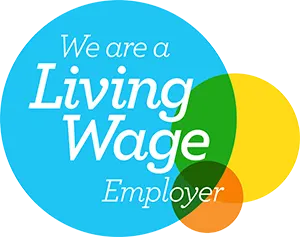In election year 2024, this is the first in a series of fortnightly blogs – running through the year – in which we invite colleagues from across the country to answer the question: Who will get your vote on education?
Roy Blatchford is serving as convener and editor of the series. If you are interested in writing, please contact info@bigeducation.org
Trust: changing the narrative
Whoever takes power in the next general election has to do a lot to win back the trust of those working in and benefitting from the education system. But as we know from the work of researchers like Bryk and Schneider, trust goes both ways: for us to trust you, you need to show that you trust us, and this is a major reboot needed in the education system.
Trust headteachers
The recent Ofsted crisis and the tragic death of Ruth Perry, plus my own and others’ experiences of a deeply uncomfortable Ofsted inspection and complaints process has led many of us to lose faith in Ofsted. ‘Deep dives’ are built on a deficit assumption: the school is hiding something, and if we dig deep enough, we will find it. It encourages schools to hide the things that are not going well – and we all have these. The process is incredibly stressful and the domain-specific nature of it naturally preferences certain curriculum approaches: schools like mine who teach a project-based curriculum are more likely have negative feedback on this in their reports (we do!) Complaints are almost never upheld, since it’s ‘my word against yours’ and the inspector is in the driving seat – the Ruth Perry coroner investigation revealed what lies beyond the written evidence and it wasn’t an easy read.
What if a headteacher could invite Ofsted to look at something that matters to them and to their school and get real feedback on what they might do next? What if headteacher complaints were properly considered in terms of ‘balance of evidence’ instead of simply checking the inspector’s written evidence? Or, if policy makers really want to show that they trust that headteachers really want the best for their schools, what if we moved to a properly accredited peer review model in which HMIs provided quality assurance at system level, instead of individually inspecting schools?

Trust teachers
Accountability is crushing teachers, they are leaving the profession in droves, both early and late in their careers. The curriculum is so packed full of statutory knowledge-focused content, teachers do not have the space to make choices so that learning makes use of their own passions and matches those of the pupils they teach: the primary maths content in (high performing) Japan is 60% of what we have in the UK. There is such a huge focus on ‘proving’, often through the provision of written evidence that teachers do not have time to plan and prepare resources in the careful way they would love to do. There are so many tests, and so much test preparation required, there is no space to simply enjoy learning.
What if we stopped testing compliance through statutory tests and started focusing on enabling teachers to design tasks and tests that provide formative feedback to pupils? What if we spent the money we currently spend on testing, on providing professional development for teachers to help them moderate teacher assessment judgements? What if we reduced national curriculum content so that there was more space for skills development, enabling teachers to help pupils develop learning to learn skills that make knowledge acquisition easier?
Trust pupils
With such a knowledge-packed, test-filled school curriculum, it’s no wonder kids don’t want to come to school any more. There is no room for choice, no room for them to follow their own interests, no room to learn how to make the right choices. Tests are one-size fits all, and there will always be pupils who fail, often before they have even reached the end of their school career, setting them up for a lifetime of low self-belief. These tests do not prepare pupils for the challenges real life and the workplace will throw at them. We need to empower pupils, teaching them how, and then trusting them to make choices that are right for them and for their future life plans.
What if the principle of choice underpinned curriculum design, and pupils could learn through and be examined in topics that extended beyond traditional school subjects? What if pupils left school with a portfolio, instead of a test score, letting them showcase the breadth of their learning as they see it? What if pupils could choose one module to learn and be examined in, instead of being tested on huge amounts of learning at the same time?
My vote goes for policies that show we can trust headteachers, teachers and pupils to make the right choices: trust shows we value what the other brings to the table, builds capacity and willing, and needs to be the foundation stone for the education system.
Sarah Seleznyov, Co-Headteacher at School 360 and Strategic Lead for Learning and Development at Big Education








